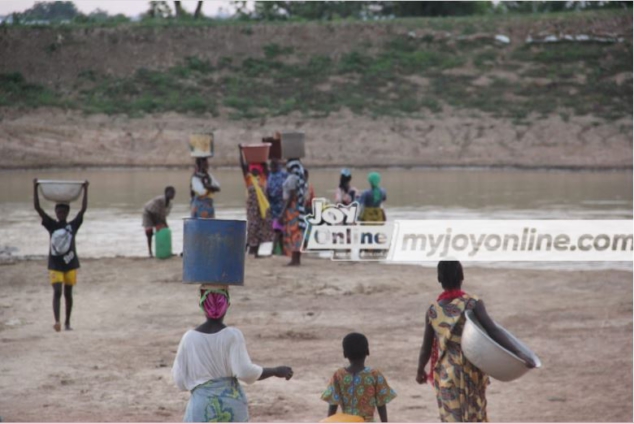On February 23, 2022, Fuseini Zakaria died at his residence in Nanton-Zuo within the Tamale South Municipality of the Northern Region. In accordance with Islamic customs, he was laid to rest on the same day in a nearby cemetery.
Survived by a wife and four children, Mr. Zakaria's son, Yakubu Zakaria, and his brother, Salifu Fuseini, visited the graveyard to seek Allah's intercession, marking four months since their father and brother's demise.
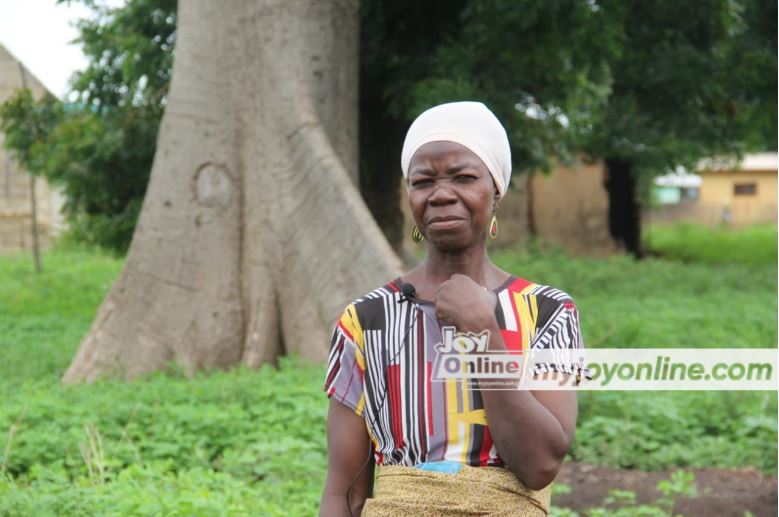
At Tamale Teaching Hospital, the 75-year-old man received a diagnosis of kidney failure. Doctors advised the late Zakaria to refrain from consuming water from the community's primary source. The advice sparked concern among residents who speculated that the dam water might be responsible for Zakaria's kidney failure.
At the family residence where Zakaria passed away, we met Yakubu, the deceased's eldest son, who had been tending to his father both at home and during his hospital stay.
While Yakubu acknowledged the absence of specific hospital records, he maintained that physicians informed him about the cause of his father's advanced kidney disease.
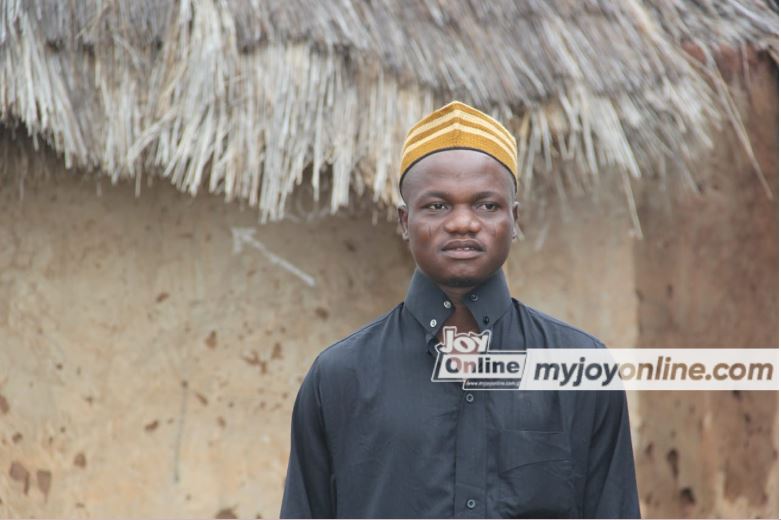
According to Yakubu, extensive tests were conducted, leading the medical professionals to conclude that his father's continued consumption of dam water was responsible for the water-borne disease that ultimately led to kidney failure.
“They carried on tests upon tests and concluded, it was water-borne disease that led to the kidney failure,” Yakubu said.
Upon further interrogation to corroborate Yakubu's claim, he explained, "That information came through their tests and examinations or based on their experience. Initially, they advised us not to provide dam water to him, stating it was unsafe. They didn't explicitly tell us that it would worsen, but the initial warning prompted our apprehension. Subsequently, we decided to abstain from using dam water for drinking. We only use it for washing and bathing, having witnessed the adverse effects it had on us."
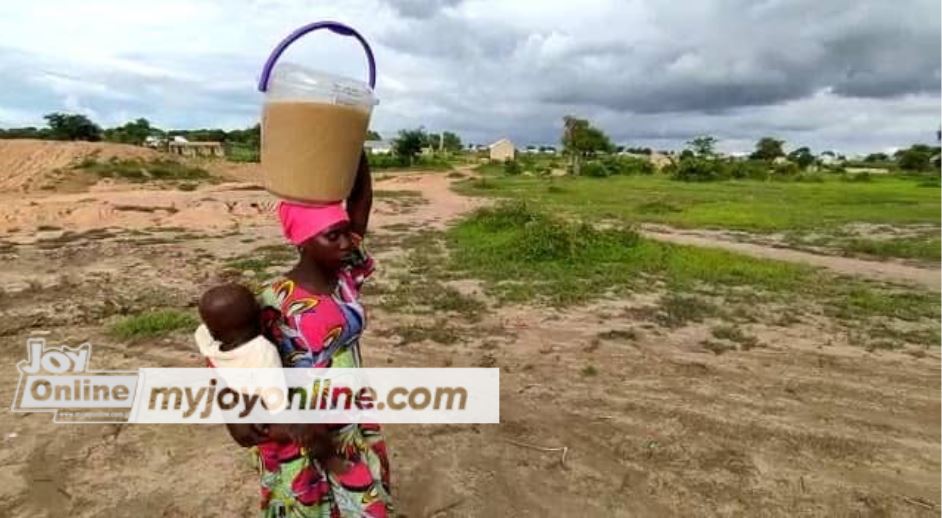
Facing the financial strain of purchasing bottled water, the family opted to buy it for the late Zakaria. Yakubu explained, "During his illness, the doctors explicitly advised against giving him dam water. They emphasized the use of Voltic, which posed a financial challenge for us given our community's economic circumstances. Despite the struggle, we made our best efforts throughout his illness to avoid giving him dam water. We resorted to using sachet water or Voltic instead."
The ordeal and anguish caused by kidney disease, a condition that may be increasingly prevalent among Ghanaians, became unbearable for Yakubu's father.
JoyNews Investigates Yakubu's Assertions on Water Safety in Nantong-Zuo
Upon initial inspection, what may seem like chocolate drink is, in fact, water designated for the consumption of Nantong-Zuo residents. The absence of clean drinking water is compelling locals to resort to the use of the significantly contaminated pond.
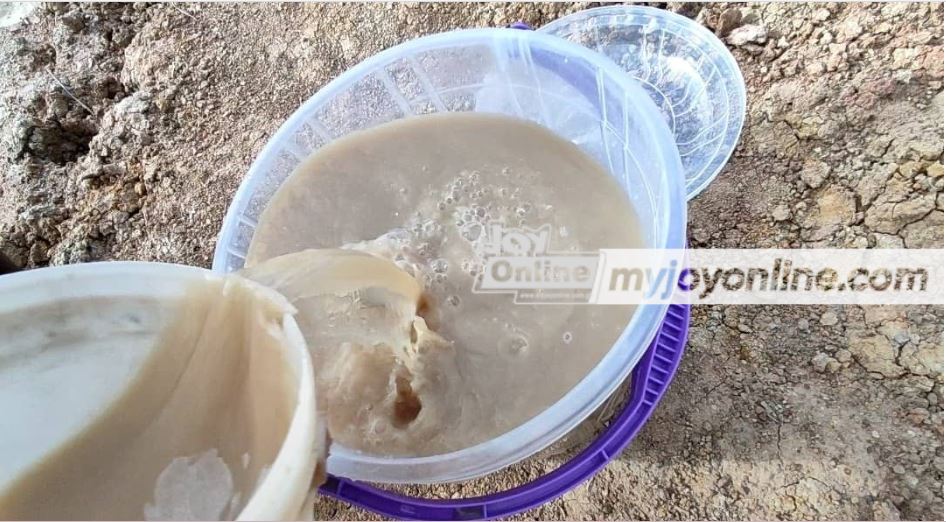
A sample of the water was collected on June 22 and sent to the Ghana Water Company's quality assurance department in the Northern Region for analysis. Analysis has confirmed that the water source is unsuitable for drinking.
Manager of Regional Water Quality Assurance, Sulemana Alhassan, explained, "With this, instinctively when you see it, you know that it's not potable. But then, you cannot be carrying this sample around showing people that this is the way the water looks. The best thing is to analyze, turn this water into a data form, and that is exactly what you have done.”
He emphasized that the results now show that water is not fit for human consumption.
He elaborated, "Because the physical and chemical parameters do not support or comply with the regulatory requirements. And if you look at it, we have Ghana standards, whatever sample you analyze, the results must conform to regulatory requirements."
Sulemana further explained that the results demonstrate that when human beings use the water for domestic purposes, it will be harmful to their health.
Mr. Alhassan provided additional details, stating that in terms of physical appearance, the water is not good; chemical composition is also not good, and the worst aspect is the microbiology.
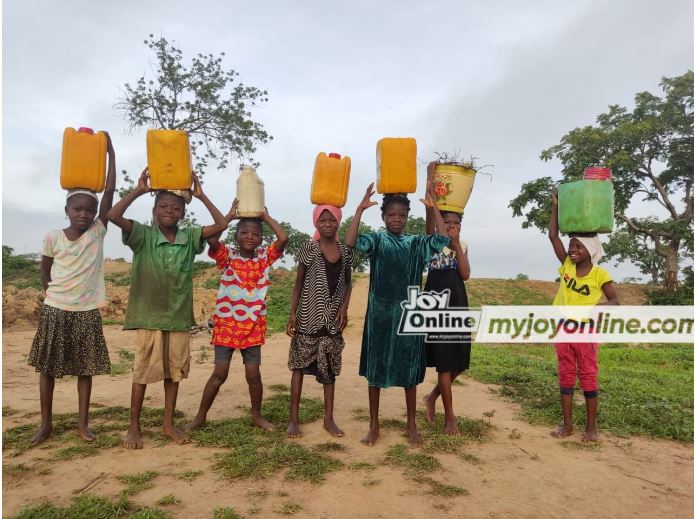
The analysis revealed that quantifying the microorganisms in the water is impossible. He explained, "When we did the analysis, we realized that, ideally, you count the number of microorganisms in the water to determine the level of contamination. Even for purposes of human consumption, you don't even bother to count the number of microorganisms because, ideally, the water shouldn't contain microorganisms."
Mr. Alhassan explained that if their team proceeded to count, it would be to determine the level of contamination. However, upon detecting of microorganisms, it indicated that the water could not be used. He clarified, "But what is the extent of pollution? That is why you now go ahead to determine the numbers. Unfortunately, when we did your analysis, we realized that we can't even count. That is why we put 'TNT' Too Numerous To count."
When questioned about the fundamentals of water quality assessment and the repercussions of consuming contaminated water, he responded, “Of course, the reason for doing water quality analysis is to be able to tell whether the water can cause injury to human life? And when we're talking about injury, we're not talking about instant injury. Some come as a result of long-term usage. Are you getting me? So, if you're using this water over a long period of time, there are some who may even begin to show symptoms of consequences within a very short period based on their immunity."

The findings suggest that individuals who continue to consume the water may experience health issues.
"Because the water that you're treating should be friendly to people of different immune systems. We call some people immune-compromised people - those whose immune system is compromised. Examples include an infant, a baby, a tiny baby, an elderly person, a pregnant woman, sick people. These people, their immune systems have already been compromised.
"So, when they are using this (referring to the water), the consequences are dire and quicker than somebody who appears to be healthy. That one, it will take time. So, once the person continues to consume this (referring to the water) without treatment, you will experience varied degrees of injuries,” he explained.
Visit to Tamale Urology and Modern Surgical Center for Expert Analysis
Mr. Alhassan's inability to precisely link the findings to Yakubu's claims, we sought further clarification at the Tamale Urology and Modern Surgical Center, a unique facility in Nantong Zuo, constructed by Le Mete Ghana, a Tamale-based Non-Governmental Organization specializing in urology and surgical support. The center, equipped to train urologists, provided insight into the water analysis results.
Our team initially shared the analysis with Dr. Akis Afoko, a consultant urologist, who oversees the Tamale Urology and Modern Surgical Center.
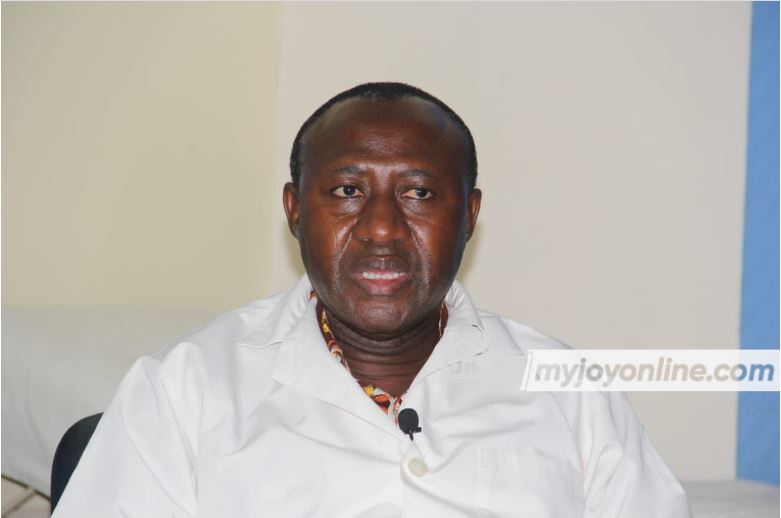
Dr. Afoko explained that, the report indicates that the water contains a substantial amount of salmonella, a common cause of typhoid fever. “I can confidently state that a third of children from the community are admitted to the hospital due to this. Additionally, it contains E. coli. The significance of this finding lies in the fact that these bacteria are transmitted through human excreta," he said.
Dr. Afoko explained that human excreta directly enters the water through a faeco-oral mechanism of transmission. When there is a heavy load of bacteria, as indicated in the report, to the extent that they are too numerous to be counted, the water becomes extremely unsafe for the entire community.
He noted that many residents seek treatment at the facility for severe cases of diarrhea. For example, schoolchildren may have to stay home from school due to persistent diarrhea. Dr. Afoko highlighted, "Many community members are presenting with severe diarrhea, sometimes even bloody diarrhea, and indeed, typhoid fever can cause perforation of the bowel, necessitating surgery."
Dr. Afoko emphasized, "It's a very common cause of peritonitis, which has a high serious morbidity and high mortality rate. Salmonella in the water, according to Dr. Afoko, means that even if you use it to wash vegetables, you will encounter problems. Drinking this water can lead to serious problems.”
Dr. Afoko Responds to Yakubu’s Claim
When confronted with Yakubu’s claim, Dr. Afoko responded, “I assume you're referring to Afa Zakaria, who was our father and brother. He was a respected member of the community. Indeed, he had a severe infection that resulted in renal failure. Typically, when you have these infections, your body may produce antibodies. While these antibodies fight the disease, they also attack the body, sometimes damaging organs. It could be the heart, but often, it could be the kidneys."
Dr. Afoko explained that the late Zakaria experienced an extended period of kidney problems, eventually progressing to terminal renal failure, leading to his demise. Having kidney failure coupled with diarrhea poses severe challenges, causing dehydration and electrolyte loss. With electrolyte levels already imbalanced due to kidney failure, diarrhea exacerbates the situation, often leading to irrecoverable conditions.
In Zakaria's case, this led to chronic kidney failure. Dr. Afoko highlighted the lack of control over pollutants entering the water body, including pesticides and weedicides from upstream spraying, contributing to water contamination.
Dr. Afoko expressed concern about the prevalence of bladder and kidney cancers in the community, particularly noting the alarmingly young age at which individuals are diagnosed with terminal cancer.
Typically, these cancers manifest in individuals aged 60 to 70, but in the community, people as young as 20 are reaching terminal stages, making surgery ineffective. Additionally, the community faces a high incidence of kidney stones, affecting individuals of all ages, including a case of a 7-month-old child with kidney stones.
The occurrence of renal failure is also significant, with younger individuals experiencing these health issues. Dr. Afoko highlighted congenital malformations, such as undescended testes and improperly formed penises in children, as additional documented concerns.
The Community Faces Alarming Health Impact and Reproductive Consequences
Dr. Afoko emphasizes the overwhelming data revealing the severe health consequences in the community resulting from the consumption of contaminated dam water. As a research-oriented professional, he expresses concern over the frightening extent of the impact, not only causing illnesses, hospitalizations, and deaths but also leading to reproductive issues in younger individuals.
Dr. Afoko highlights the implications for the community's future, stressing the role of plastic pollution and pesticides in disrupting hormones and the endocrine system.
"Younger people are having smaller testis than older people. And what is the future of any community, any town or any country if out of pollution from plastics, from pesticides, you now not able to reproduce? Nobody is going to shoot a gun and take your country. They just wait until you can't reproduce. The plastic pollution which is affecting our water body and also the pesticides are all disrupting hormones and the endocrine system,” Dr. Afoko expressed sadness.
Dr. Afoko's ultrasound screenings in Nantong-Zuo reveal concerning patterns in testicular sizes among adults below 35 and those above 60. The records, matched with semen analysis, show that younger individuals have smaller testicular volumes, reduced sperm numbers, compromised motility, and abnormal morphology.
"They are having smaller volumes, and the motility is drained in the younger people, and the morphology is also abnormal, more abnormal form.” Dr. Afoko emphasizes the anomaly, pointing to the impact of contaminated water on reproductive health. Additionally, he showcases kidney stones, including one extracted from a two-year-old, highlighting the severity of health issues in the community.
“This came from a two-year-old. This stone and we are able to do some surgery without cutting the body. So this stone was broken with a piece of laser and extracted.”
The urologist also displayed another kidney stone removed from a 32-year-old patient who lost their kidney. Since it was a non-functioning kidney, there was no need to break it; they simply removed it. The kidney loss was attributed to severe infection caused by contaminated water. These patients are experiencing pain and the loss of their kidneys due to infections from the contaminated water. "It was from contaminated water and all that and these patients are in pain. They are losing their kidneys because this kidney was lost to severe infection.”
Residents' Reaction to Dr. Afoko's Revelation
Fuseini Salifu, the younger brother of the late Fuseini Zakaria, expressed deep sorrow upon hearing the doctor's revelations about contaminated water and the diseases it can spread. “I was saddened by what the doctor said about contaminated water and the diseases it can spread.”
Returning to the dam, our camera captured children drinking water at the source. Residents acknowledge the negative health impacts but feel they have no alternative. Yakubu Habiba, for example, has sought medical attention for complications, incurring substantial hospital bills, including a recent payment of about 600 cedis. “I spent about 600 cedis at the hospital. They gave me infusions and medications.”
When asked about the doctor's diagnosis, she mentioned that the doctor attributed her illness to the water she uses. “The doctor asked me about what I eat, and I told him, truly it is this water I use. Then he said that it was the cause of my sickness.”
Zubaidu Hazifa, a student at Anbariya SHS, revealed that they use the water for drinking and cooking. “We use it for every purpose. As you can see, this is water. This is used by my parents, siblings, and everyone else for drinking, and cooking.”
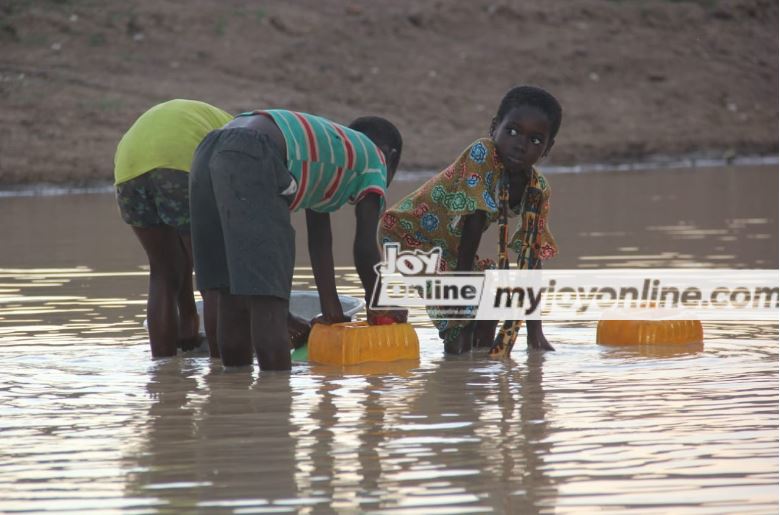
Women and children spend a minimum of 4 hours collecting a basic commodity that, in reality, poses more harm than good. Some residents have been consuming the water for over 30 years.
Zubeiru Musah, an opinion leader, shared, "I have been consuming this dam water for over 40 years, hence I am afflicted. So, you'll keep drinking the water until you see a doctor, who will then determine that you are sick. You will then require significant medical attention."
Access to clean water in Ghana
Despite significant progress in Ghana's water accessibility, disparities persist. About one in ten people spend over 30 minutes accessing improved drinking water sources, while 11% still rely on unsafe surface water. Alarmingly, 76% of households risk consuming contaminated water, according to UNICEF. Again, only a small fraction, 4%, treat water suitably before consumption, whereas 93% do not treat it at all.
Available data revealed that the collection time for water is strongly linked to poverty, with the poorest individuals over 20 times more likely to spend more than 30 minutes collecting water compared to their wealthier counterparts. Regional disparities also exist, with households in the Northern Region 16 times more likely to spend extended periods collecting water than those in Greater Accra.
Gender inequities are evident in the long collection times for water, disproportionately affecting women and children. The lack of reliable water supply in rural areas contributes to declining access to water within a 30-minute timeframe. This is common in impoverished communities like Nantong-Zuo, where accessing clean water is a daily struggle.
Poverty grips the residents, making it difficult to afford clean water or build sustainable sources. Women and children bear the brunt, competing for contaminated dam water every day. The lack of clean water exacerbates existing challenges, making everyday life a grueling test of resilience. The community's future hangs in the balance, as clean water remains an elusive luxury.
Though efforts are made to ensure a safe and sustainable water supply, inadequate documentation on system sustainability and water quality hinders the scaling up of effective approaches.
Lack of political will to address water challenges
The lack of political will is a major roadblock in addressing the water crisis in Nantong-Zuo. Residents are frustrated with politicians' empty promises, and experts agree that without genuine commitment from policymakers, efforts to resolve the issue will be futile. The consequences of authorities' inaction are dire because residents remain vulnerable to waterborne diseases, medical expenses skyrocket, and lost productivity drains community resources.
"What we need is not just words, but action," said Madam Habiba, a resident. "Politicians promise change, but nothing changes."
Experts concurred, citing political will as crucial for effective solutions. Dr. Afoko said, that without commitment from policymakers, his efforts and those of many other medical professionals who attend to patients are futile, saying the community's future is at risk.
Local authorities would not speak to the matter as efforts failed, but residents said they deserve access to clean water, and it's time for policymakers to take decisive action.
As Fuseini, emphasized, "We need leaders who will prioritize our well-being over political interests. Our lives depend on it."
Long-term water solution
Breaking this cycle requires sustainable solutions, addressing both infrastructure and economic needs as access to clean water remains a fundamental right, essential for health, education, and economic empowerment.
However, the long-term solution for the residents of Nantong Zuo remains a question, which I posed to Mr. Alhassan, the Manager of Water Quality Assurance.
Mr. Alhassan stated that the superior method to treat this water is conventional water treatment. This involves having a facility that can clean the water by separating suspended matter, color, turbidity, and obtaining clean water. The next step is to eliminate microorganisms through disinfection. He suggested possible pH adjustments and emphasized testing the water to ensure the treatment process is optimal and does not contain harmful microorganisms or chemicals. Once achieved, the water can be declared wholesome.
"If possible, we do PH adjustments and then, after that you now test the water to see, if the treatment process is, you know, optimum, is good such that the finished water would not contain harmful microorganisms - chemicals that can be injurious to human life."
He recommended conventional treatment methods but also mentioned alternative options such as borehole drilling or underground water systems, which may require less treatment if the water table is favorable. "You can drill the borehole and then maybe that one may not require so much treatment if you are lucky and the water table is good.”
Dr. Afoko further mentioned that there is some underground water available, albeit at a considerable depth. He expressed the belief that if a borehole or two could be installed, along with a pumping mechanism, it would significantly alleviate the burden on the community. This, in turn, would help reduce the prevalence of diseases among children, the elderly, and the entire community.
"Yes, if I won't stop drinking the water, then it is because I have no option. But if I have a way, I will stop because I know the water is not good for my health," expressed Yakubu Habiba, one of the residents.
Another resident, Fuseini Salifu, raised concerns, stating, "I saw that, given the current course of events explained by the doctor, the Zuo community is in danger. But how do we get out of this danger? We, as a community, have nothing if the wealthy people who can assist us do not do anything."
Latest Stories
-
Ghana Month series: Exploring the evolution of Ghana’s currency
10 minutes -
Howo Max Tractor launches in Ghana
20 minutes -
Stakeholders meet in Keta to address illegal fishing practices in Volta region
28 minutes -
Mustapha Gbande applauds Mahama’s commitment to completing agenda 111 hospitals
35 minutes -
Kumasi fire: Renowned contractor supports victims with GHs500k
41 minutes -
There will be a National Vultures Award to expose corrupt officials – Bagbin
41 minutes -
Speaker Bagbin announces National Integrity Awards to honour anti-corruption champions
43 minutes -
Adum fire: Gov’t to negotiate flexible loan repayment plan with some banks for affected traders
45 minutes -
CCCFS, GMet train religious leaders on weather forecast interpretation
53 minutes -
KNUST researchers develop AI technique to improve image recognition accuracy
54 minutes -
Body of missing 3-year-old found in abandoned dam at Bibiani
55 minutes -
DKT International Ghana, Upper Manya MP hand over CHPS compound, borehole to Aframase
59 minutes -
UNIA signs MoU with Abibitumi, R2GH to facilitate repatriation, citizenship acquisition for black people worldwide
1 hour -
Rainstorm wreaks havoc in Akatsi South
2 hours -
D-Black clears the air on fight between his crew and client at RNAQ40
2 hours

